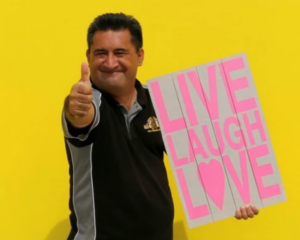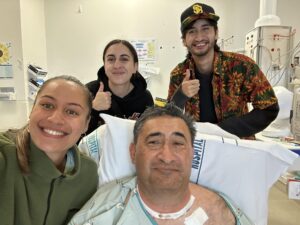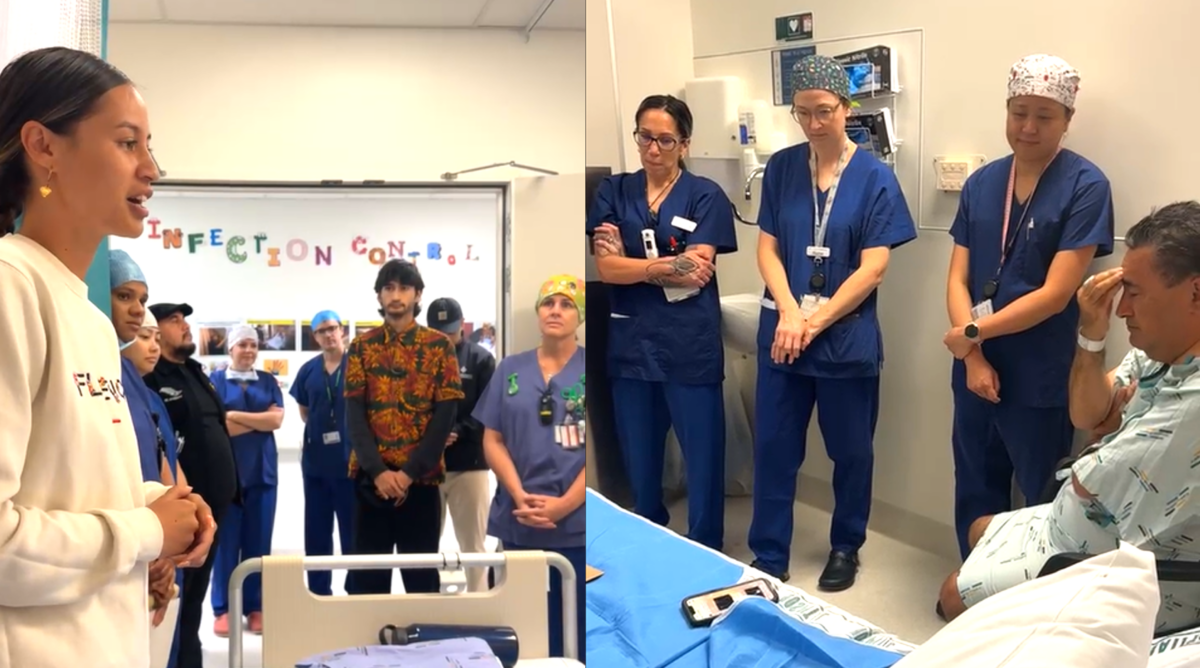That’s what happened recently on level 3 at Waikato Hospital as the whānau of Māori broadcaster Kingi Biddle (Ngāti Whakaue-Te Arawa) from Rotorua gathered in his room before he was taken to theatre for what would be a 12-hour surgery to remove tumours in his throat.
“All the doctors and nurses told Kingi that they were touched with the karakia before the surgery and that it made them try extra hard,” said Kingi’s wife Wendy Biddle.

“They all came to see him the following morning as they were blown away due to the wairua in the room. There were about 10 of them and none of them were Māori, which really impressed us.”
Initially the karakia was only intended for Kingi’s whānau, but the medical team asked if they could be part of it too, said Kingi who is now recovering well back at his home in Rotorua.
“We let the medical team know two weeks before surgery that we wanted to do a karakia before I was taken to surgery. Then the doctor asked if she and her team could come too. I thought that was really really awesome.
“Our karakia is real, it does make a difference. It is rongoā [medicine, healing]. Karakia can change things. I could feel the warmth in my throat, the healing that was happening. I could see the peaceful calm in the team before I was put to sleep.
“We often think of karakia as a tick box, but it is real. It guides us – the hand of the surgeon, others doing work on the patient and the patient,” said Kingi.

The surgery was a success as all tumours had been removed.
Kingi said the reciting of karakia was a normal regular practice within his household and whānau. His wife remarked that he is sometimes referred to as the “karakia king” by many of his relatives.
“Around the time of Covid-19 a couple years ago, Kingi set up a group on Facebook where he does karakia livestreams most nights. It is called Karakia o te Ahiahi Po,” said his wife Wendy.
“A lot of our relatives from Te Arawa (of all and many different religions) who have faced loss, uncertain times, depression and who want a piki te wairua (a positive uplift), have joined the group to be part of his karakia.”
The moment lasted for about 10 minutes, starting with a kōrero from Kingi’s daughter Anipātene Biddle, followed by a karakia led by his son and nephew. The event was captured in a livestream on Facebook.
John Kopa, the head of Te Puna Oranga Māori cultural team at Waikato Hospital, said he was proud of the medical team.
“We’ve been working hard to ensure staff not only recognise the clinical needs of our whānau but also the cultural needs,” said Kopa.
“Māori take things like karakia and wairuatanga very serious and it is good to see that our clinicians are making time and space for them. We’ve definitely come a long way in 20 years.”





